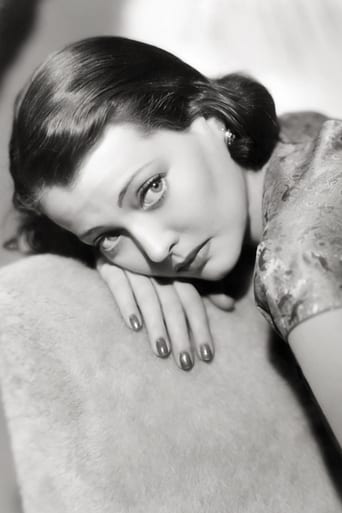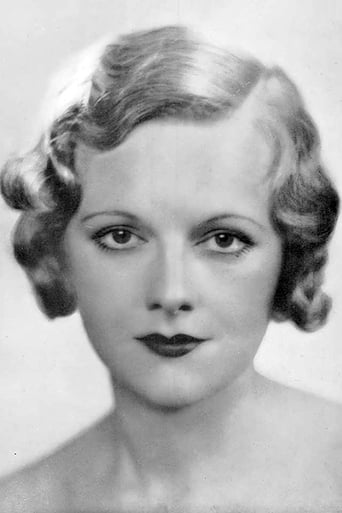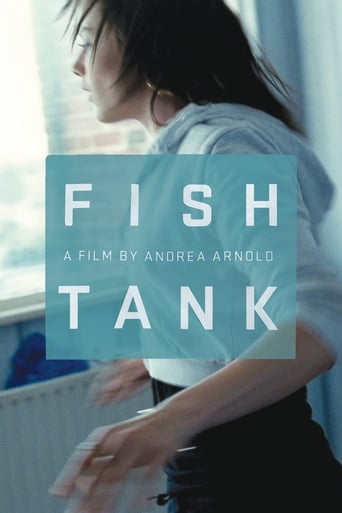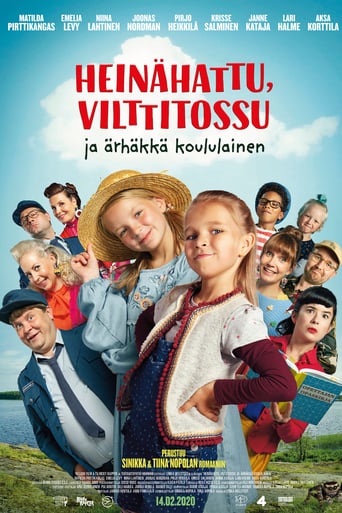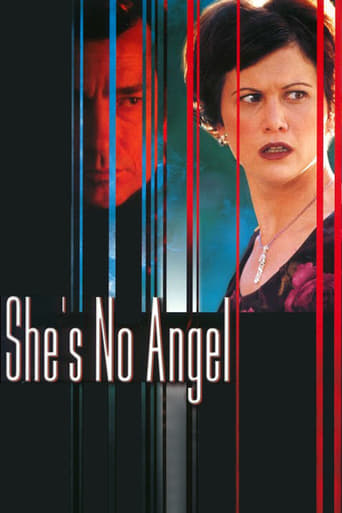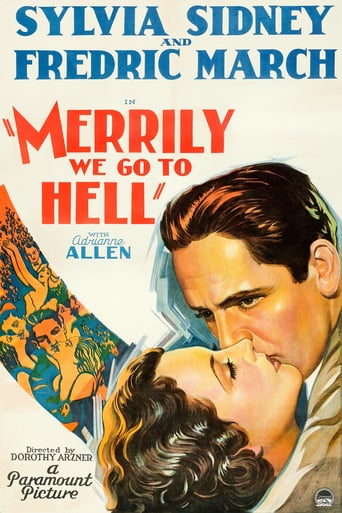
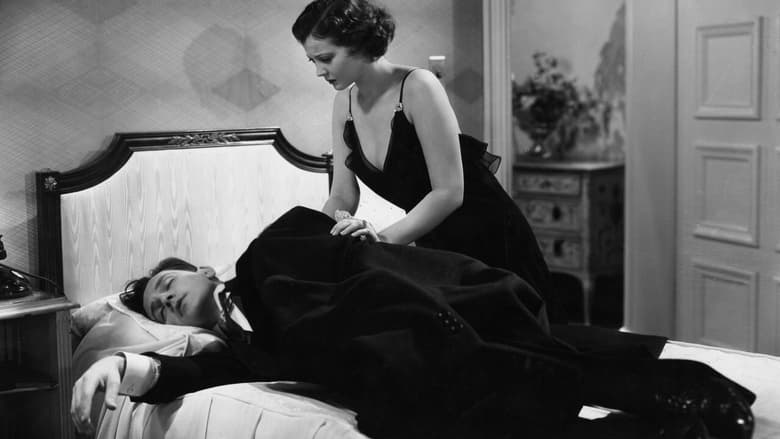
Merrily We Go to Hell (1932)
A drunken newspaperman, Jerry Corbett, is rescued from his alcoholic haze by an heiress, Joan Prentice, whose love sobers him up and encourages him to write a play, but he lapses back into dipsomania.
Watch Trailer
Cast
Similar titles
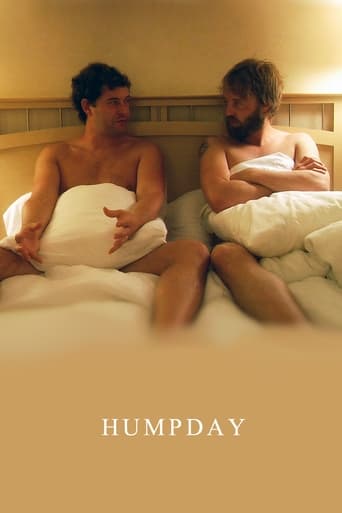

Reviews
Simply Perfect
Load of rubbish!!
Great Film overall
a film so unique, intoxicating and bizarre that it not only demands another viewing, but is also forgivable as a satirical comedy where the jokes eventually take the back seat.
Frederick March and Sylvia Sidney star in "Merrily We Go to Hell," from 1932.For those of us who only remember Sylvia Sidney as an older character actress -- and usually a pretty mouthy one at that -- seeing her as an ingénue is always a revelation.Jerry Corbett (March) is a reporter and a drunk, still pining for the woman who broke his heart, Claire (Adrienne Allen). When he meets the lovely Joan Prentice (Sidney) from a wealthy family, the two fall for one another and marry.Jerry wants to write plays, and he eventually is able to have one produced, early in the marriage. Unfortunately, one of the stars is Claire, and she's perfectly willing to take up where they left off. Jerry starts drinking again. Joan is heartbroken as well as hurt and starts drinking and partying herself. Finally, though, she returns to her father's home.Nothing too surprising in the plot, but good performances all around. Sidney is pretty and vulnerable, taking a chance on a man her father disapproves of but whom she loves. March shows that Jerry is a weak man who in his heart doesn't believe he deserves the happiness he's had with Joan. Can these two find their way back to one another? Just guess.Dorothy Arzner had a good sense of pacing, so the film doesn't drag or slow down. Worth seeing for the actors, not necessarily the story.
A wonderful and unsettling pre-Code film about an alcoholic playboy (Fredric March) who marries a sweet young thing (Sylvia Sidney) and proceeds to drag her down his path of dissolution. The depiction of their marriage is quite shocking, even by today's standards -- not only do they have an "open" marriage, they openly practice that freedom in front of their friends, suggesting a swinging lifestyle that wouldn't become approachable as subject matter in films for another 30+ years. March and Sidney give fantastic performances, and Dorothy Arzner, one of the rare women directors of the time, takes a matter of fact approach that leaves behind the melodrama and sentimentality that might have blunted this same story's impact in the hands of someone else.One of the most refreshing aspects of "Merrily We Go to Hell," and one of the most shocking, is that Sidney's character does not suffer nobly while we wait for March to see the error of his ways and come back to her a chastened man. Instead, Sidney starts to behave just like him, coming within a stone's throw of alcoholism herself, and doing her own share of philandering. In that way, the film is even a little progressive in its equal treatment of the genders, even if that equality is the equality of debauchery.Grade: A
This is a movie that has a lot to say about 'modern' relationships, drinking, and feminism of the time. And for the most part the execution is very good.Merrily We Go to Hell is an extremely well acted film, but that to me is not the highlight of the movie. It's the writing with realistic characters and funny moments that are the best part of it. It is one of the better performances I've seen from Sylvia Sidney, which is a little odd as its one of her earliest.Fredric March stars as a man who doesn't deserve the love of a rich girl that has fallen for him. He's frequently drunk (the title of the film is his favorite drinking toast) and disappoints her at nearly every turn. It's hard to understand exactly what Joan (Sidney) likes about him so much. But that's the way love is sometimes. Joan takes the good with the bad and always seems to forgive the bad, no matter how appalling. Jerry (March) is still getting over his last relationship, attempting to drink it off.One moment in that part of the story was a highlight for me, where Jerry mentions his previous girlfriend. Joan asks if he has a picture of her, and he responds by saying he has one hidden away somewhere that he looks at once in a blue moon when he's feeling lonely. The movie immediately cuts to him arriving home and the picture of the girl he was mentioning is framed on the wall, with a personal note written to him on it. A clear omen for things to come.Merrily We Go to Hell does a fabulous job showing the dark side of drinking, something movies of the time rarely did. As the overall weakness of Jerry and Joan's relationship becomes unraveled, it takes Joan just a little longer than it seems like it should to finally get the courage to leave him. This is very much a sign of the times Depression-era picture. Showing the underlying unhappiness in the lives of socialites.If you are are a Carey Grant fan, he is essentially a pawn in the relationship game. As Jerry seems to be falling for his ex, the star of his new play, Joan attempts to give him a taste of his own medicine by going out with the other star of his play (Grant). Grant has maybe 4 or 5 lines.My only major criticism of the movie is the ending. I know it was a written rule in Hollywood at the time for movies to have a happy ending, but I don't consider the two of them getting back together a happy ending. Joan was right to leave him and she never should have taken him back. She was better off without him. Ending on the scene where she leaves would have been a better ending climatically, as well as been a happier ending. But in the time period that ending would not have been possible.
Once you get past the appalling title, this is a good picture. It's a Pre-Code film and must have been naughty in its day, but is tame by today's standards. It involves a fairly routine love story pulled out of the doldrums by Director Dorothy Arzner and by exceptional acting performances by the two principals, Frederic March and Sylvia Sidney. Poor Sylvia suffered through countless 30's tearjerkers and she is once again miserable here as the put-upon wife of drunken writer March. Was never a fan of Sylvia's, particularly as she became desiccated and more pathetic in later years, but she never looked lovelier and more appealing than in this movie. Skeets Gallagher plays March's drinking buddy and adds immeasurable stature to the film. He remains one of Hollywood's most shamefully underutilized and overlooked talents.Was surprised to learn that a strain of Womens Lib flourished in the early 30's, as our heroine declares her independence (more or less) from her inebriated husband and, in addition, her wedding vow did not include the words "honor and obey", which I thought were de rigeur until mid-century. This last may have been a directorial touch of a feminist director.This is an underrated, under-appreciated movie, especially if you enjoy solid acting and are a sucker for a pretty face, to borrow a phrase.
